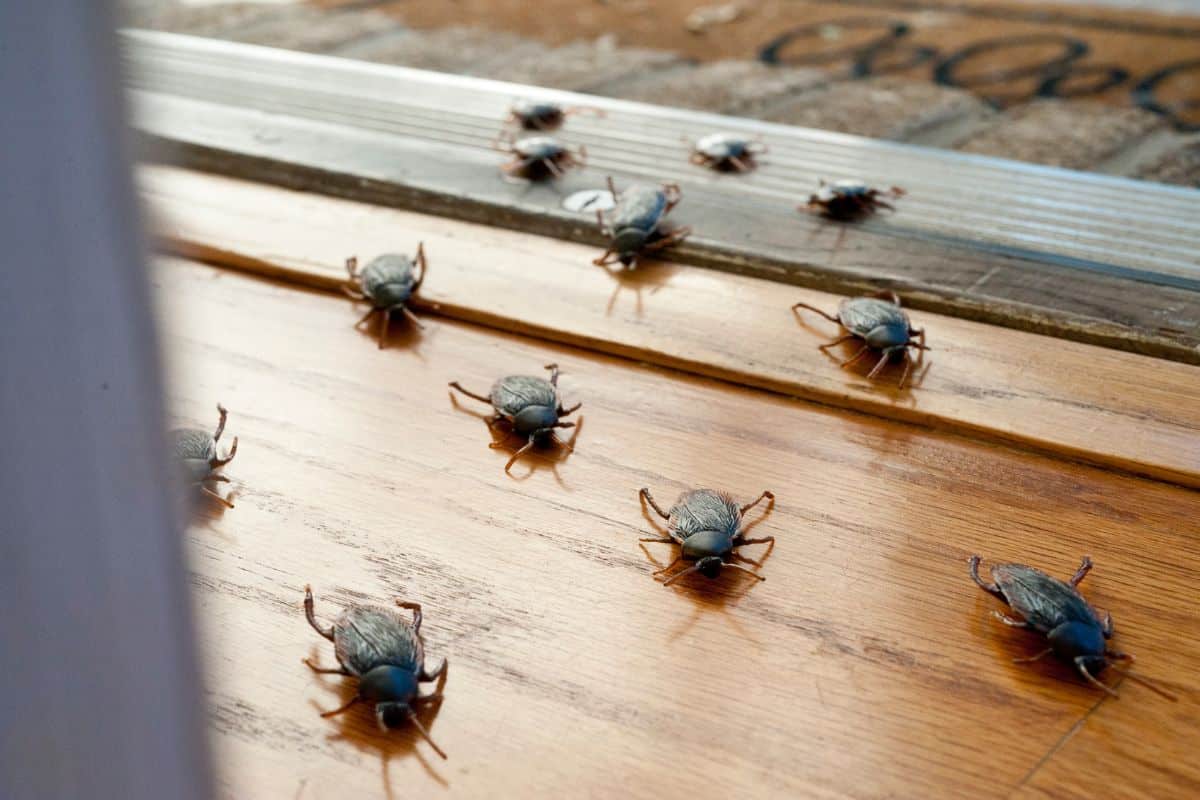When faced with a roach infestation, many homeowners wonder if common household products might offer a solution. Bleach, with its strong disinfecting properties, often comes to mind as a potential roach killer. But does bleach actually kill roaches? Let’s explore this question and examine the effectiveness of bleach against these resilient pests.
The effectiveness of bleach against roaches
Bleach contains sodium hypochlorite, a powerful chemical that can indeed kill roaches upon direct contact. When a cockroach comes into direct contact with bleach, the chemical attacks the insect’s exoskeleton and respiratory system. The strong oxidizing properties of bleach break down the roach’s protective outer layer, ultimately leading to its death.
However, the effectiveness of bleach has significant limitations. Cockroaches are incredibly resilient creatures that have survived for millions of years. They’re known to survive conditions that would kill most other insects, including exposure to radiation. While bleach can kill roaches on direct contact, these pests are extremely good at avoiding dangerous substances and rarely remain in areas where bleach has been applied.
Another important consideration is that bleach evaporates relatively quickly. This means its killing power diminishes rapidly after application, making it ineffective for long-term roach control. Cockroaches are also nocturnal creatures, coming out when humans are typically asleep and the bleach has likely already evaporated or diminished in strength.
The resilience of roaches parallels that of other persistent pests like fruit flies. If you’re dealing with multiple household pests, you might also want to learn how to keep fruit flies off bananas for a comprehensive pest management approach.
Risks and dangers of using bleach for pest control
While bleach might kill some roaches, using it as a pest control method comes with significant risks. Bleach is highly caustic and can cause serious damage to surfaces in your home. It can discolor fabrics, damage wood finishes, and corrode metal surfaces. This makes it impractical for use in many areas where roaches might hide.
More importantly, bleach poses health risks to humans and pets. When used improperly or in large quantities, bleach can cause:
- Respiratory irritation and breathing difficulties
- Skin burns and irritation
- Eye damage and vision problems
- Dangerous chemical reactions if mixed with other cleaning products
Bleach should never be mixed with ammonia or ammonia-based products, as this creates toxic chloramine vapors that can be deadly when inhaled. Many roach sprays and pest control products contain ammonia, creating a potentially dangerous situation if used together with bleach.
If you use bleach for cleaning purposes, it’s worth noting that it’s also effective for removing brown stains and limescale from toilets, though caution is always necessary when handling this powerful chemical.
Better alternatives for roach control
Given the limitations and risks associated with using bleach, there are far more effective and safer methods for controlling roach infestations. Integrated pest management techniques typically yield better results while minimizing risks to your health and home.
Commercial roach baits and traps work by attracting roaches with food, then delivering insecticides that the roaches carry back to their nests. This approach is more effective because it targets the entire colony, not just individual roaches. Boric acid powder is another relatively safe option that can be applied to areas where roaches travel. Unlike bleach, boric acid remains effective for months if kept dry.
Prevention is equally important in roach control. Roaches are attracted to food sources and moisture, similar to how opossums are attracted to certain foods in outdoor environments. Taking these preventative measures can significantly reduce roach populations:
- Keep all food in sealed containers
- Clean up spills and crumbs immediately
- Fix leaky pipes and eliminate standing water
- Seal cracks and crevices where roaches might enter
- Regularly empty trash and keep garbage areas clean
For severe infestations, professional pest control services offer the most effective solution. Pest control professionals have access to commercial-grade insecticides and the expertise to apply them safely and effectively. They can also identify roach entry points and harborage areas that homeowners might miss.
Natural roach control methods
If you prefer to avoid harsh chemicals altogether, several natural methods can help control roach populations. Diatomaceous earth (food grade) is a natural powder that damages the exoskeletons of roaches, leading to dehydration and death. It’s safe for humans and pets but deadly to insects with exoskeletons.
Essential oils like peppermint, cypress, and tea tree oil have been shown to repel roaches. While they won’t kill an existing infestation, they can help prevent roaches from entering treated areas. Catnip contains nepetalactone, a natural compound that research has shown to be an effective roach repellent.
Maintaining a clean, dry environment is perhaps the most effective natural control method. Roaches thrive in moist, dirty environments and are deterred by cleanliness. Regular cleaning disrupts their habitat and removes the food sources that attract them. This preventative approach helps maintain not only roach-free spaces but also healthier indoor environments in general.
Just as you might address black spots on camellia leaves with appropriate remedies, tackling roach problems requires specific solutions targeted to the nature of the pest. While bleach might kill roaches on contact, its limitations and risks make it a poor choice compared to the many safer, more effective alternatives available for long-term roach control.

